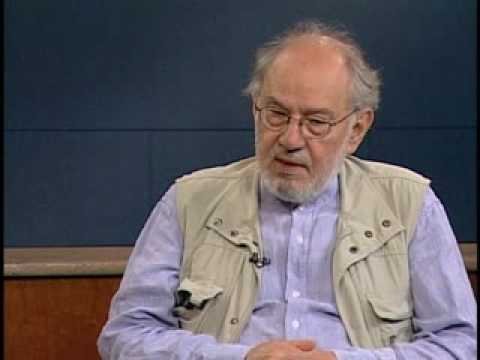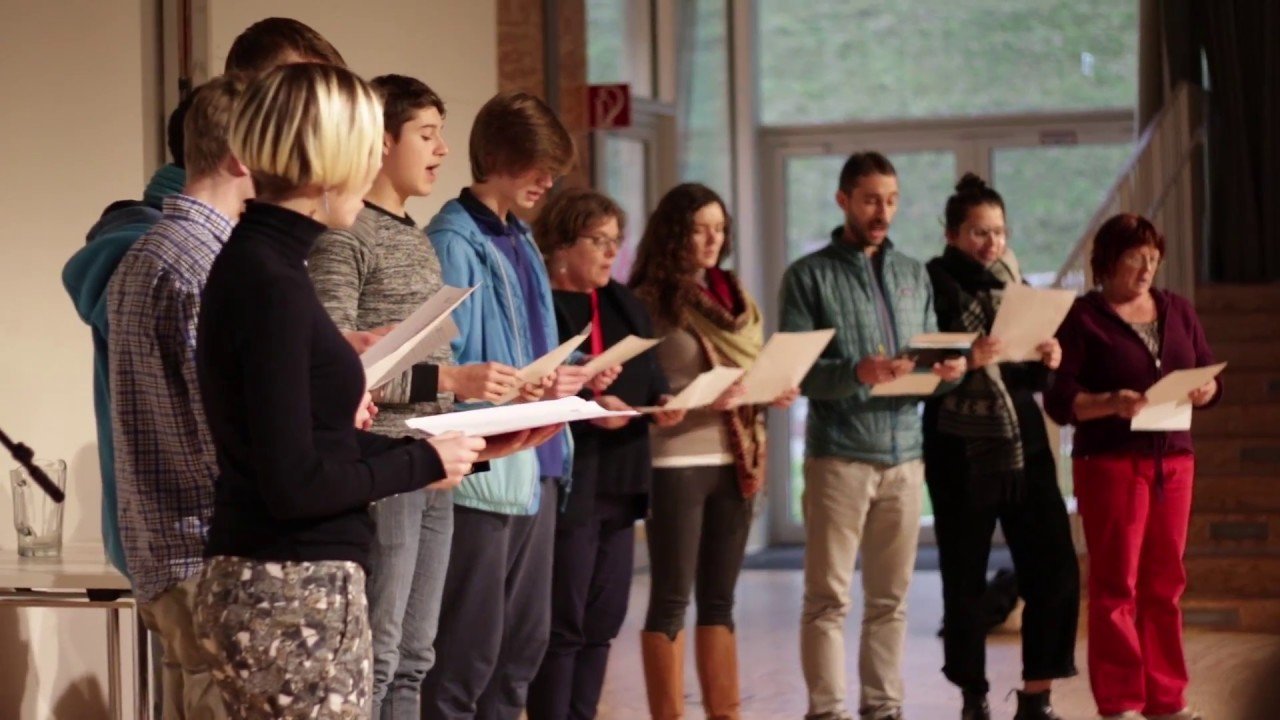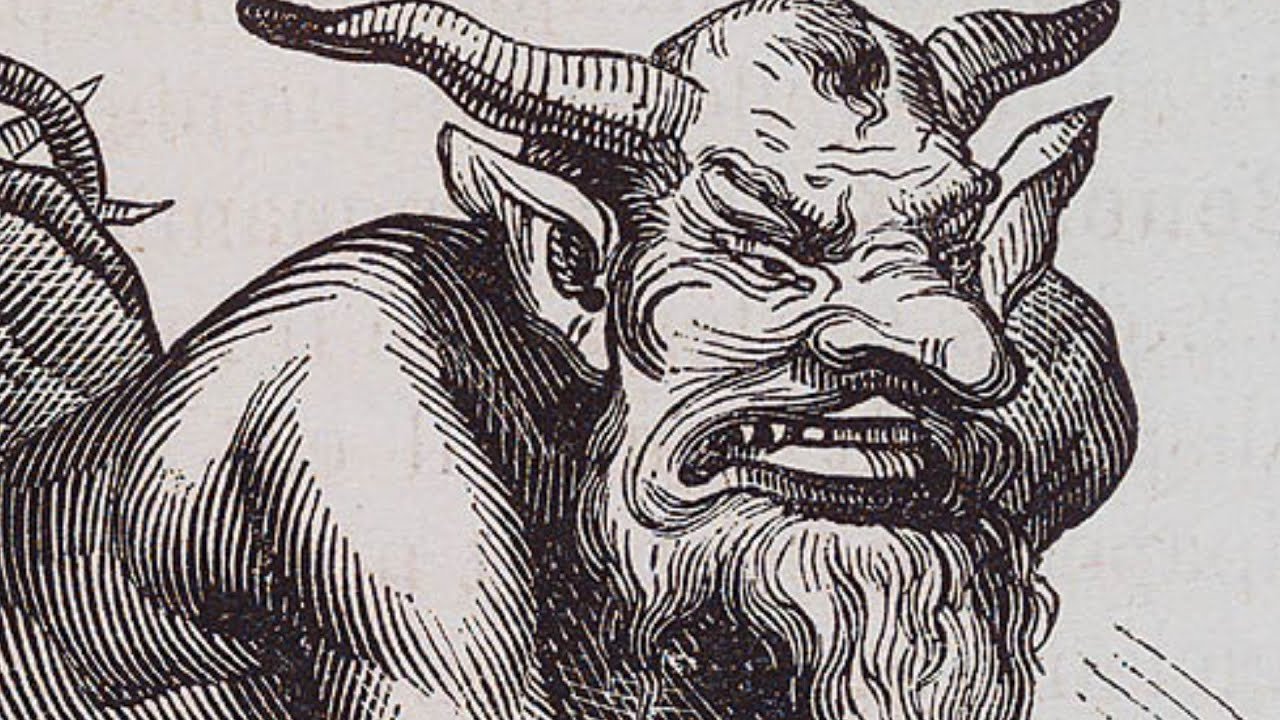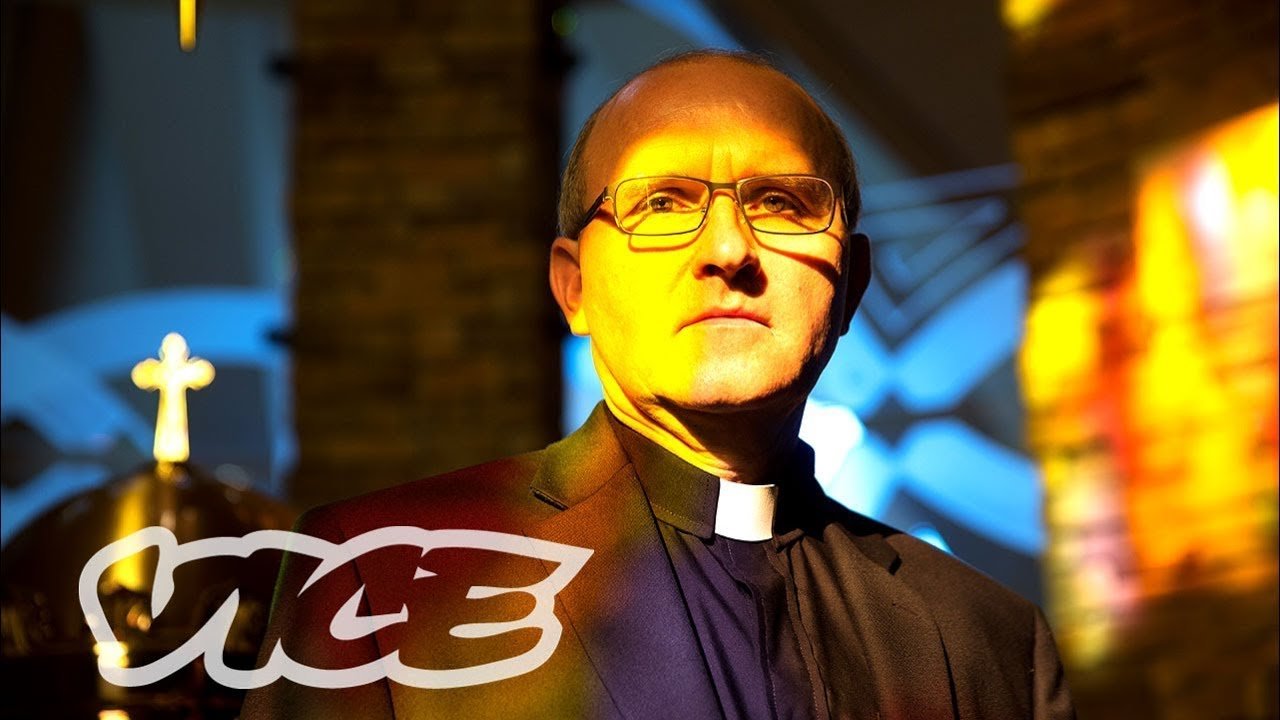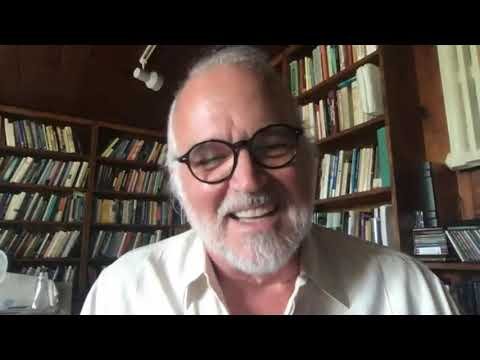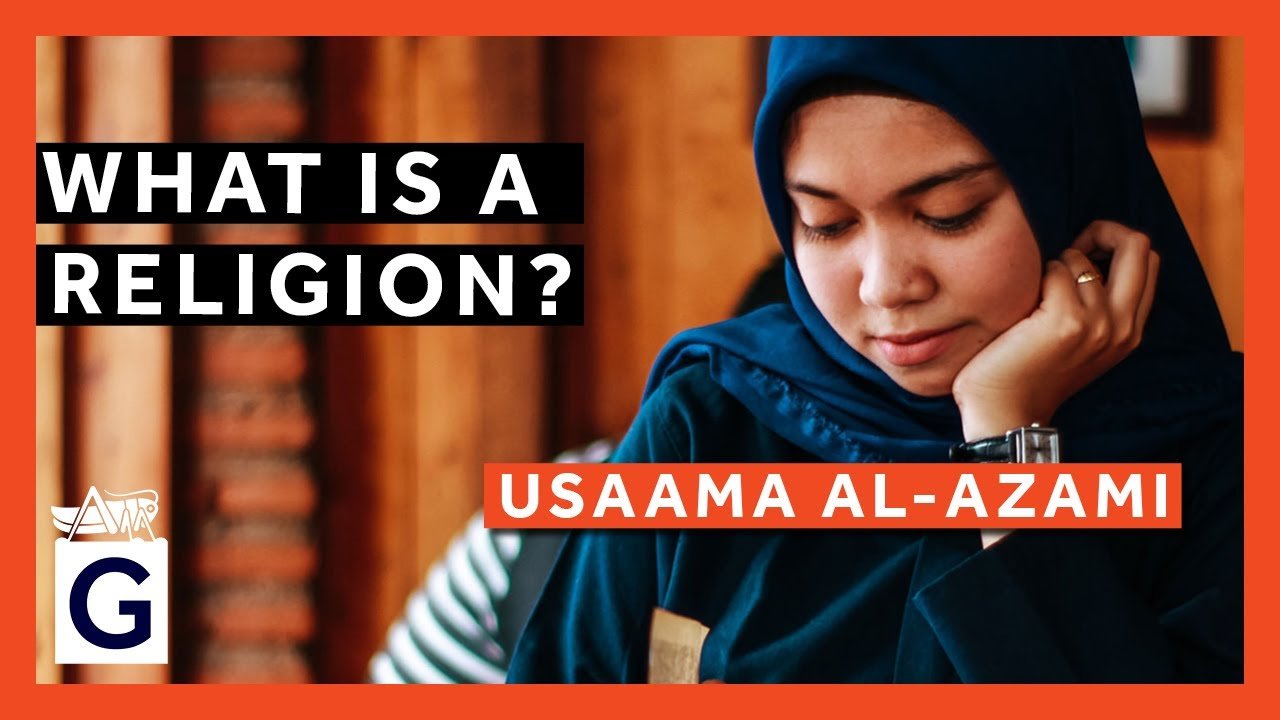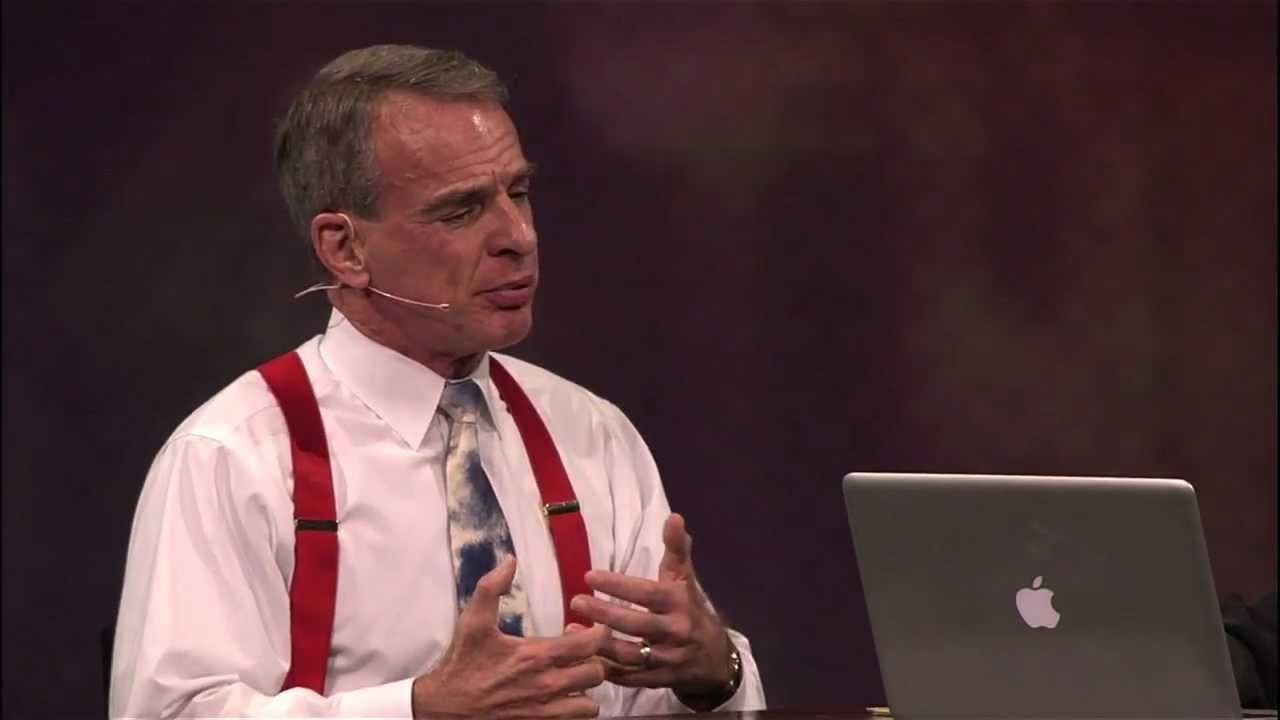– Welcome to a Conversation with History, I’m Harry Kreisler of the Institute of International Studies. Our guest today is the distinguished anthropologist Talal Asad, who is the 2008 Foerster Lecturer on the Berkeley campus. Professor Asad, welcome to Berkeley. – Thank you very much. – Where were you born and raised?
– Well, I was born in Saudi Arabia, actually, because my mother comes from there and my parents moved when I was a couple of years old to India, and then eventually to Pakistan. So, I was raised both in India and in Pakistan. Well, in very different ways. My mother was a very traditional woman. My father actually was an Austrian Jew who had converted to Islam in his twenties and was a correspondent, a foreign correspondent for the Frankfurt Allgemeine Zeitung and for the Neue Zurcher Zeitung as well.
In the 30s, he had to give up the first one, the Frankfurt one, because he was not allowed to continue. And he was very interested in the Middle East. And that was where he eventually settled for six years in Saudi Arabia, married my mother, and moved on to India,
Partly for reasons, journalistic reasons, but also because he had friends who urged him to come. So, the question about what, how they shaped my views, well, certainly my father was much more aware of, as it were, a European heritage, as well as the heritage of the Middle East,
To which he was very attracted. And although he had relatives, mother’s relatives, in Palestine at the time, in the 20s, he was born in 1900. – And he converted when? – [Talal] And he converted in his mid-twenties. – I see. – And he died in 1992 in Spain and he’s buried there.
But, he was always really a strong anti-Zionist. He felt that this was a great mistake, even before he became, before he was converted. – So, what I’m hearing you say is you must have gotten a real sense of the diversity of the world and the complexity of the world from them.
– Absolutely, and I was a child, but my father was interned during the war, as an Austrian citizen, even though he was a Jew, by the British, it was, of course, British India at the time. And I was a child, but most of the people there during those years
Were, in fact, from Central Europe, who’d been brought together. So, I have memories of them, as well. And then, shortly after the war, we went to the Punjab, which became Pakistan. And, you know, I was very much aware of many of the things that were going on politically there, as well.
My father was quite active intellectually in Pakistan, as well. – And were you raised in the Islamic? – I was indeed, yes, very much so. My mother being a very pious woman who is not at all an intellectual, but who, in some ways, looking back on it,
I can see that her approach to her religion, in some ways, unconsciously made me aware of different approaches and that is of an unreflective, what people have called an embodied approach to religion, rather than a highly intellectualized one. My mother was not an intellectual, of course.
– So, the religion is really part of the way people live. Is that right? – That’s right, exactly. That was certainly so. And it was certainly for, for my father, it was even more an intellectual matter too. He thought of this as a kind of an intellectual promise,
So to speak, of Islam as a way of living within a community and within a political community and so on. – I believe I read somewhere that, as a Muslim, you were actually, were you educated among Christians – in a school. – That’s right. – And that must have been a kind of
Another layer of a sensitivity to diversity. – Very much so. It was a boarding school and the teachers were British missionaries there. And I can remember being a very obstreperous boy who was determined to, as it were, hold on to his own religious identity among others who were mostly Christians. But, you know,
It wasn’t a very conflictual situation in school, I don’t want to suggest that. But certainly, difference was, you’re right, was very much a part of my early experience. – And how did your education beyond, you know, these first schools, but more your advanced education in England, impact your future scholarship?
– Well, I came to England at the age of 18 and I was, in fact, going to become an architect. That was my father’s choice. He decided for various reasons, because he was also perhaps an architect manque. He thought a, it was a wonderful profession
And b, he thought I needed a certain amount of discipline as well as an opportunity to be creative and what could be better than being an architect? So, he chose for me the profession. I went to London and did architecture, not very successfully, because my heart wasn’t in it,
For two years in the Architectural Association School of Architecture in London. But, I really wanted to be an anthropologist. And then I went off to that, took my own decision and went and did architecture at Edinburgh, sorry, anthropology at Edinburgh. I left architecture. And after that I went to Oxford
Where I did both my first postgraduate degree and my Dphil, the PhD, in Oxford. – And did you focus on religious studies and what was your dissertation on? – No, not at all. You know, I had to some degree, although I was brought up in a sort of a fairly conventional religious way,
Perhaps not quite so conventional, obviously, because given my parents’ background. But, I had to some extent revolted and felt myself to be, to have lost my faith already at the age of about 14 and so on. And I wanted very much to come to Europe,
Which I regarded as a source of all the wonderful things that seemed somehow not to be present in Pakistan at the time. And I remember that my father tried to, in his own way, to disabuse me of some of my ideas, which were rather naive.
But nevertheless, he allowed me to go to Europe, which was interesting. And indeed he, you know, he even encouraged me when I was a boy to try and learn the piano and things like that. And European music is something which I’m extremely fond of and still am deeply fond of.
But, going to Europe was, for me, both something which was exciting to arrive at and, at the same time, as I’ve said to friends, a kind of a slow disabusement, because I sort of had clearly had ideals, and so on, which were very misplaced in terms of what actually existed.
But, my intention to do anthropology was part of a, if you like, a purely secular choice and I eventually did fieldwork in a pastoral nomadic society in the deserts of northern Sudan in the 60s. And it didn’t deal with religion at all. It had to do with their economy
And their political system, primarily, their local political system. – Were there any particular political awakenings that you had in the 60s? I mean, coming from this background where you must have sensed, however young you were, the turmoil in the Pakistan region and then coming to your mature years of education in the 60s.
What stands out? – Well, I think one of the moments, a very important moment in my life was the ’67 war. And I’ve written about this elsewhere or spoken about it, anyway. It was very traumatic for me in the sense that I couldn’t quite understand the reaction of so many people in Britain
To what had happened and a kind of exaltation on the part of the British, which I thought was inexplicable to me. As I’ve said elsewhere, I think I could understand that the Israelis might have felt, you know, very pleased with the fact of the victory,
But why were the British so enormously satisfied with it and emotionally pleased? So, and that had to do with, of course, their earlier experiences. Particularly the ’56 war and their sense of humiliation at that time, when they were obliged, you remember, to withdraw. And some of that came back
And that was very important for me and it also made me think much more seriously about the entire colonial experience, which British society still somehow retained in part. – I wanna ask you about being an anthropologist, but what you just said is maybe a lead-in to this, because as an anthropologist,
One thing that stands out in the work of yours that I read is your sensitivity to power and the relationships of power between the former colonial powers and their former dependencies. And it strikes me that what you just said, was that an entree point into this insight? That is, with your background,
Sort of being surprised by the exaltation and then, sort of thinking about that? – Yeah, I think that’s a very good question. Because I was certainly aware of power in a very general sense and aware of the history of colonialism. But, the way in which it seemed to work
Within the psyche, if you like, of people both individually and collectively, was something that I felt was much more important than I had realized. And, you know, as I said, when I came to Britain, I was also enormously enamored of what one might call an enlightenment kind of culture,
Which I thought I would find. And I was enormously anticipatory with regard to ideas of equality and justice and rationality and so on. You know, held rather naively, of course, as a boy in my late teens. But, nevertheless, very powerfully. And in some ways I think
What my engagement with or my concern for power has been is a kind of complexification of those understandings. So, at first, I thought my goodness, how can this be that this is the culture which believes in all these things and compassion and so forth. And yet, it seems not to do that.
But then, of course, as I’ve said, I had to reinvent the wheel by recognizing that, you know, all sorts of cultures, all cultures, in a sense, are capable of bias of different kinds, every culture. So, the idea that there was one culture out there which would be without it
Was, in my view, very naive. – A theme that runs through your work is the power of concepts and often, how they are derived from power relations. And how those concepts then obscure the realities both of the conceiver and the object of the conception, so to speak.
Is that a fair, maybe simple, statement about some of the things that have interested you? – Yes, I suppose it’s one way of putting it. But, I think of power, now certainly, not simply as repressive and exploitative. I think of it also as something
Which is an opportunity to create, to rebuild, and so on. And the relationship between these two emotions of power, as it were, repressive and creative, it is what fascinates me and is certainly very involved. The ideas, the concepts which interest me, therefore, are both concepts that obscure the possibility
Of some kind of resistance as well as the possibility of some kind of creativity, as well. So, I do agree that that’s not an unreasonable way of describing things, of looking at the way in which these concepts are put together, in which we’ve received, in our culture,
And which in some ways are not adequately and critically and from a distance examined. – I’m curious, what, in the kind of work you do, what do you, what conclusions do you have about the skills that are required to do the kind of anthropology that you do well?
One thing that strikes me is sensitivity to culture, the different cultures. What else? – Well, certainly with languages. – Yeah. – You have to have languages which are necessary for what, I mean, as a medium, both in the field where you’re working but also, at the same, of other perspectives,
Even within the West, as it were, you know, to recognize that there are different national traditions, as well. I think the ability to listen is very important. I don’t know that that’s the kind of skill that can be very sort of systematically or formally learned. But it’s certainly has become easier for me,
Both through teaching, particularly through teaching, and through field work. And I think that that’s absolutely crucial for the anthropologist. To be able to listen, as it were, without too many presuppositions and being open to arriving at conclusions that might be quite startling, eventually, when you arrive at them.
But, not think that you have an answer. I’m giving you a really, perhaps not quite the answer you want. – No. – About skills, but. – Yeah, well, but that, this is, I should maybe I should have phrased the question better. But, that’s the answer I wanted. – [Talal] I see.
– Whether I gave you the right question. Now, how does the student and the scholar transcend the biases that come out of their own culture? That would seem to be a big problem. – It is a big problem and certainly, you know, I don’t think any of us can completely overcome our biases
And the formation that has made us what we are. But, insofar as one can try by encountering very different kinds of cultural phenomena, very different kinds of human beings in different societies, and demand of oneself that one listen, as I said a moment ago, and that one try and question
Not only what one finds out there, to question also oneself. I mean, I’m a great believer in criticism and a criticism which I think should not be confined only to, as it were, the cultural phenomena that we encounter, but also our own criticism, self-criticism. I don’t know, one can only try
And of course, we won’t completely succeed, I’m convinced. But, we can try and question ourselves. – If one looks at your works, it’s very clear that they’re steeped in comparative studies, comparative theory, interdisciplinary work, and combining that all with a sensitivity to the complexity of a particular setting and so on.
Talk a little about that. I know you’ve worked on reform in Egypt and religion and what emerges is a much more complex picture of what the interface between modernity and what the West would call modernity versus tradition. – Right, well you know, one of the things I’ve been very struck by
And I’ll come back to, more directly, to your question in a minute, but is, as I put it, that within the West there is much more argument, much more difference about what modernity means. And what it entails, how one gets to it, or what its problems, its primary problems are.
Too often, partly because it’s a presentation of Westerners who have, as it were, directed their words to the non-Western world and also, as a consequence, people in the non-Western world. There seems to be what I call a single face to modernity. I mean, this is no longer entirely the case.
I know that there are all sorts of developments going on, especially in East Asia and South Asia, and so on. But, there is a lingering sense here of, you know, we know what modernity is, modernity and we know how to get there and it’s quite different from our tradition.
I think in the West, one doesn’t think that. One recognizes how important traditions are, all intellectual traditions are traditions, first of all, we work through and we rethink them, but they’re still traditions and we think of them in or we try to think of them in a modern, i.e. contemporary way.
So, I would say that the question of, you know, the very different kinds of approaches to modernity, for me requires an exploration of kinds of knowledge from very different disciplines, both Western disciplines, if one might call them that. I’m not very happy with that, but still, you know roughly what I mean.
And the more traditional disciplines in the Middle East, theology, law, say Islamic law, Islamic theology and so on are I think very important to get into. As well as the different opportunities in the disciplines that we have in our liberal institutions. – I’m looking here at the definition in your book
And I’ll show the book, the Formations of the Secular. And just as an autobiographical note, you say, “Modernity is a project “or rather, a series of interlinked projects “that certain people in power seek to achieve. “The project aims at,” and then you list the and what just sort of struck me was
Many of these things must have been in your mind’s eye when you came to England, thinking that you had found a secular Mecca. – [Talal] And a modern, yes. – Yes, yeah, so. – Absolutely, yes. – And in another place, and I can’t unfortunately find the quote right now,
You mentioned that we forget that the notion of modernity that the West has come up with really emerges out of a particular time in our history when we made a transformation and we forget that and then want to apply the concept that emerged from that to other peoples who come from
Different practices and different histories. – Exactly, I think that that’s very true and that is, of course, part of the reason why we find so many problems, both social and political, in that part of the world. Indeed, we sometimes, you might say, some of these problems arise here too in the West,
Whether it’s the United States or Europe. For some people, the idea of modernity is quite straightforward and certain things must be rejected if one is to be truly modern. And then, for other people, not so. You know, one has seen arguments about the British political system. No doubt you’re familiar with these arguments,
Which say, well of course, the British system is not completely modern yet because, you know, the Church of England still has a certain important place in the British government and you can’t call that modern. Because in a modern state, and here we think of either the United States or France,
Both very different kinds of secular arrangements, in which, in some ways, the religion is at least politically intended to be kept out. So, but I’m not sure that it’s a good description, say, of the British system to say it’s not modern. This presupposes a single model.
The question is, is it the kind of society that is, that produces obstacles in the path of various developments which we think of as valuable or not? Rather than, is it modern or not? I mean, that’s why I’m a little leery of the idea of modernity as well.
– And you go on to point out in this book that the theory makes the assumption that it’s a binary choice, that it’s one or the other. And you’re trying to help us understand that there’s much greater complexity and in a way, I think you’re suggesting that you can’t actually understand
What’s going on in a place like Egypt and how it reformed itself in religious matters and how this interface between what came from the outside, interface with kind of living practices and a living religion. – Yeah, this is absolutely true as far as, you know, my work on Egypt is concerned.
This is what I’ve tried to do and I think of this as an anthropology which is, I think, appropriate for our time. By which I don’t mean it’s the only thing that one can do as an anthropologist, but I think it’s very important to be able to
Somehow tackle the question of various interconnections, as well as distinctions. But in ways that are not binary, as you’ve just rightly quoted. Because I think that the language that we use, that everybody uses, makes for very different possibilities of interpretation and of living and therefore, binaries are a rigid way
Of approaching these problems. I think it’s a mistake to even think of, you know, the secular and the religious in strictly binary terms. I think that there are all sorts of interpenetrations, especially if you look at it historically, as well as cross-culturally. That you see that there are various connections,
Various transmutations of concepts, of modes of behavior, of organizations, and so on. – Mmmhmm, you write, “In an interdependent world, “traditional cultures do not spontaneously grow or develop “into modern cultures. “People are pushed, seduced, coerced, and persuaded “into trying to change themselves “into something else, something new “that allows them to be redeemed.”
I’m curious because, of course, this is an insight into what’s going on in the developing world, but one could almost apply this to the United States itself and the way our secular modern elites have been shocked by the revival of religion in this country and the way it seeks to intrude into politics.
– Right, yeah, I’m still learning about the United States and the problem, or the problems, that people see of secularity and religion, but certainly, I think there is a greater awareness among various people of a complexity which we have overlooked. So that one can try to work out ways of accommodating
A certain kind of multiplicity and of interconnection, without allowing this to be repressive of individuals or of traditions and so on. And this is very difficult in any culture, certainly. In the Middle East, as well. You have forces which are repressive and you have forces which are opening up.
And it’s not always easy and I say this not as a criticism, but as a fact, not easy for people to know, certainly in the Middle East, where they should be going. And what, as it were, a more adequate and reasonable and just development of a tradition in moments of change might be.
So, and I think that this is true here too. You know, people are on the one hand worried by certain developments in the demand for the intrusion of religion into politics. But in other ways, they do recognize that there are some aspects of what we call religion
Which somehow could have a place, as it were, in the public square. But how to do- – And the important thing here, which we should say for our audience, is that secularity, being secular, defines a world in which religion is separated from the public space
And the two, although side by side, do not meet. And what we are encountering in the world and here at home is the concept doesn’t work completely. – Right, right and I think on this one finds ways in which one can address that difficulty. You know, the outcome will often be rather unpleasant.
And I do think that it’s necessary not just to keep insisting on a straightforward separation of two things, which are themselves very ambiguous, religion on the one side and secularity on the other, but to recognize that there have to be, one must analyze out what the implications of each are,
To what extent elements of each can be changed, accommodated, made to answer for its own claims. And I think that this can apply to both secularity and religion. – And a place where this problem emerges very strongly is in Europe today as it deals with its Muslim communities.
– Absolutely, yes, it’s a matter of both of great interest to me, as to what’s happening in Europe, and at the same time of considerable dismay that Europe has become so rigid in many respects and so fearful, really, of a population that is, on the whole, initially not at all,
Should not be seen as threatening. While elements might be, but I don’t think that the majority should be seen in this way. And there are ways of accommodating and some are more, and some states and some national traditions are very rigid. The French one, of course, is famously, extremely rigid
About accommodating certain kinds of religious differences. – For example, the veiling, the hijab, yes. – Yeah, absolutely. But you know, many people often forget that the French who are supposed to be so fiercely laic are also able to accommodate religious schools, Catholic schools, which have a place within the government educational system.
And it’s possible for people to do whatever they like, including cover their head and so on, in religious schools. But, not in government schools. I mean, there’s a degree of, you know, a contradiction and incoherence in our approaches to secularism, in Europe as well as, perhaps, in the United States.
– You write that when Europe or the West errs in its overemphasis or overstatement of its own modernity that you write, “The belief that human beings “can be separated from their histories and traditions “makes it possible to urge a Europeanization “of the Islamic world.” And you’re really suggesting that is gonna create problems?
Are you suggesting that? Or what are the implications beyond an insensitivity to the reality of people that one presumably would want to integrate? – Well, in the first place, yeah, I think that there are problems that will arise and have already arisen. The problems are partly also the result
Of certain claims, historical claims that liberal Europe has about degrees of autonomy, degrees of, as it were, self-determination, which are not simply political, but also social, cultural, and psychological, and so on. How is it that these ideas which were regarded as basic to Europe’s inheritance have now suddenly become difficult to apply
And you have to have one model? I think that integration, in other words, is something that requires a certain amount of give and take. The nations of Europe, as in the United States, have never been stable, stationary. They have evolved over time. We know this.
But, this very banal fact tends to be forgotten, time and again. That, you know, if we are changing then we can’t rigidly say there is just our way of life, which must stand forever and unchanged. But, also something in which one can give and take and at a reasonable level.
And that should apply, I think, to immigrants as well. – As a social scientist one has to analyze the factors that provide the social or political base for this blindness to both the inadequacy of the concept and the reality of one’s own history and evolution
And the reality, history, and evolution of the other, in this case. – Right, well, you know, there are clearly elements, if you like, on both sides so it’s not just a question of a straightforward blindness on one side. But, I think in some ways there’s a greater responsibility
On the part of the party which is much stronger and the party which is more secure in dealing with groups that are less secure that are expected to transform themselves. What are the origins of these? I think they are largely historic. In the case of Europe, the entire colonial experience
Has been very strong I think. That there’s no question in my mind, both for Britain and for France, certainly. In Germany, it’s a little more complicated, because the immigrants there are not from, I mean, the Germans have never had that kind of empire as the French and the British did.
But, that’s one part of it. And I think, if you like, that the modern nations in Europe are not sufficiently liberal, not sufficiently modern one might even say, provocatively, although I’ve criticized that idea as a simple idea, in not taking their own values seriously enough. But, there are all sorts of incentives.
For political, economic reasons, it’s easier to find scapegoats and so on. I often think that, in the case of Europe, I’ve said again, provocatively, that it’s almost as though the Europeans now, no longer able to publicly denounce Jews and persecute them, however sub rosa sort of anti-Semitic some of them might be,
But, it’s no longer possible for a person in Europe to be taken seriously as a respectable public figure and be anti-Semitic. This is no longer true. This is not true, of course, in relation to immigrants. So, there’s a kind of shift, almost. It’s almost, one might suggest,
Because they can’t any longer, as it were, choose one outsider or define one group as an outsider which they did and then, right up through the 30s, which was the most terrible period, and now they have to find somebody else. I mean, I’m making a provocative formula out of it.
– And you’re not saying that having lost the one, you have to do the other, it just tends in that direction, right? – In that direction. Because, of course, many people don’t do that. I mean, there are lots of very responsible people and lots of people who are warning against
Precisely the attitude which I’ve been describing with some dismay. Lots of Europeans who have made the very points that I’m making already about it being in conflict with liberal ideas, with democratic ideas, and so on. – Let’s talk now about 9/11 and look at the way
We’ve looked at this problem of suicide bombing. And let me show you, the audience, your book on suicide bombing, which is a series of lectures you gave at the University of California, Irvine, I believe. After 9/11 we were in a situation of having to reconceptualize our adversary,
So a lot of these themes that we’ve been talking about come into play in the way the West sees the other. What do you see as, what insights do you bring to that definitional issue that, you know, follows up on what we’ve just been talking about?
– Well, I think that, in some ways, this connects up with some of the things we’ve already said. And that is, the need to look critically at many of our received categories and received notions. In other words, not just to criticize the others or the perpetrators of that terrorist attack,
But to go deeper. And again, there were people who already suggested this at one time. At the time, it was a bit difficult to make this point forcefully. – [Harry] After 9/11. – After 9/11. – Yeah. – Nevertheless, there were some people and since then, there have been more
Who have urged that, you know, what we also need is an examination of the relationships between, say, the United States, in this case, it was the United States, and the rest of the world, but particularly, of course, in this case, the Middle East. Instead of just blaming,
Just as it’s, I think, quite wrong for Middle Easterners to blame everything that happens in Middle Eastern countries on the outside, which I think is not true, I’m extremely critical of the political situation in the Middle East, but it should be so too, in the United States, so that one can look critically
At our relationship, as I put it, to violence. In what way, historically as well as within the country, as well as between the United States and other parts of the world, what has been the relationship to violence and how has it been invoked at certain points and denied at other points
And what are the consequences of what we’ve done? I say we, ’cause I’m already now an American citizen, of course. So, I became an American citizen in summer of 2001. Rather, sort of symbolically. Anyway, so that’s what I would say in answer to, I don’t know whether I’ve really adequately, probably not.
– Yes, you had, but let’s explore, but at least in terms of looking at the other, you say, or you suggest, the way you see, define, explain terrorism gives a justification for the actions of the state. That’s my reading of what you’re saying. In other words,
That in going down one road of interpretation, it then makes it easier for the state to practice all kinds of violence and come up with a moral justification for that. – And a violence not only on the outside world, but within. – [Harry] Yeah, right, right.
– Exactly, and you know, so many people have complained a restriction of liberties and all sorts of things. We’re going over very familiar ground which, nevertheless needs, I think, to be stressed again and again. I think that the whole question of war and terrorism has fascinated me.
When I wrote this book and gave the lectures, I showed it to a friend who said yes, he liked it very much. And he could see, he was an American born and bred, he could see that I was rightly saying that in some certain instances, terrorism might be justified.
And I said no, this is not what this book is about. I am not trying to justify terrorism. I’m just trying to shake this sort of binary categorization which gives rise to certain kinds of policies. So, I had to actually spell this out. You may have seen this in my short introduction
That’s saying this is not intended as a justification for it. I’ve, as I’ve mentioned to you, I’ve become particularly interested also in the whole idea of just war and the reasons for it. And I’m working at the moment on that very category
And the way in which it is a kind of moralization of war, which I think should not be moralized at all. I’m not a pacifist, but I don’t for one moment think that just war is a coherent and valid notion. And the way in which this justifies certain kinds of violences,
Which are often of a enormously greater scale than anything that the wretched terrorists can do. There are so many things, not only in the way in which we have used air power in war, for example, but also in this very ambiguous business of when one transgresses the law of war.
And the law of war is, for me, fascinatingly, much more ambiguous than I thought it was. There’s a very fine and insightful writer on this, a law specialist, David Kennedy, who’s written, I’ve quoted him in my book, but since then he’s written another one on the law of war,
Which has, I think, extremely good insights about the law of war being not a series of rules which cannot be transgressed and which are supposed to justify just war, but really a language, what he calls a language for argument. And that’s what the law of war is.
There are others who’ve also developed this. Again, an international law specialist in City University who has written a number of wonderful articles called, I keep trying to remember rightly, was it Jonathan Berman? Oh, Nathaniel Berman, who’s written on this subject as well, very much about the question of the construction in war
Of various categories, including that which has allowed, you know, the proportionality business, the question of necessity, and so on. So, what I tried to do in this book, first of all, is to shake those categories so that we could think for ourselves.
I mean, I don’t provide any answers, as you know very well. But, I want, I hope that some readers will begin to question for themselves and find answers for themselves. And then, in the final part, of course, I was still fascinated by the reasons for horror at suicide bombing.
And there were all sorts of reasons, it seemed to me, one could draw on to try and explain what that sense of horror was. Which could be looked at without being moralistic about it, because as an anthropologist, I was and here I was much more thinking about it anthropologically.
And also reminding ourselves that, you know, in modern society, we are committed to all sorts of conditions that would otherwise be considered terroristic and horrific. And one of those, which I do mention in the book, you may remember, has to do with nuclear weapons.
– Go on, go ahead, please, no you know, finish, go ahead. – Well, I just wanted to say that, you know, in a number of official definitions terrorism is defined as not only an act, but also as a threat, the threat of terrorism. I mean, a particular kind of threat makes it terrorism.
Now, it has seemed to me, as well as to legions of other people, that possessing nuclear weapons, which you say you’re going to use if necessary and you will destroy not only the enemy, but in the process, yourself, you’re prepared to do that, seems to me, logically,
You have the logical structure of terrorism. And yet, we don’t see that and we don’t address it quite in those terms and I think we should. – This part of the conversation is raising an interesting point and that is, as a social scientist, as you try to disentangle
The complexity of our own development in thinking about an issue, violence and war, violence between combatants, and so on, we basically get some new insights about ourselves, we see different things about the adversary. Now, what’s interesting is the point you made about what your friend said, because when you begin to do that,
What you’re saying becomes politicized and people say, oh, you’re defending suicide. Talk a little about that, because it really is an important issue of where the academy can have insights, but in those insights becoming part of the political debate, there is a politicization in which people are accused of saying things
They didn’t say. – Yes, of course, this is very difficult to control, to some extent. Let me approach this indirectly by referring a review that was made of this book in the Times supplement, the Sunday supplement. A book review by Samantha Power, which, in fact, was about three books,
Including one of Petraeus, and this book, and one other, I forget which. And when she turned to that, she said among other things, well, she said a couple of nice things, but she disagreed, of course, fundamentally with it. But, she described it as an angry book
And she said in the end, rage overcomes him. And I’ve been saying to my friends, you know, did she read the book or didn’t she? Well, the point is, you can’t control how people read you. And I think that, you know, this is simply a rediscovery of a fairly obvious thing.
It’s no use by saying no, no, I wasn’t angry and I certainly wasn’t enraged. But, people will read you in odd ways and to some extent, you can control that by at least explaining yourself, but in the end, there are things that you can’t, I think,
Totally control how people will take up what you’re saying. My hope is that the, insofar as the politicization, it can be seen as an indirect one. I mean, I think of, if you like, of democratic politics also as a kind of personal, interpersonal kind of ethical encounter in which one can,
One should be able to treat others with whom one is engaging on equal terms, critically, but also listening carefully instead of jumping to the conclusion that, you know, that they belong to a certain category. What they’ve said, aha, we already know what he or she is saying
And we really will not tolerate that sort of thing. And asking oneself why one has these feelings of rejection, as well, as we proceed. You know, for me, in a sense, democracy is not just about, you know, voting and so on, which is, in some ways, the least problematic aspect of democracy.
There is that other aspect which I think is very important and very neglected, including the readiness to be self-critical. – Professor Asad, on that note I wanna thank you for coming to the campus to be the Foerster lecturer and also for appearing on our program.
– Thank you. – And thank you very much for joining us for this Conversation with History.
#Religion #Secularism #Politics #Conversations #History

